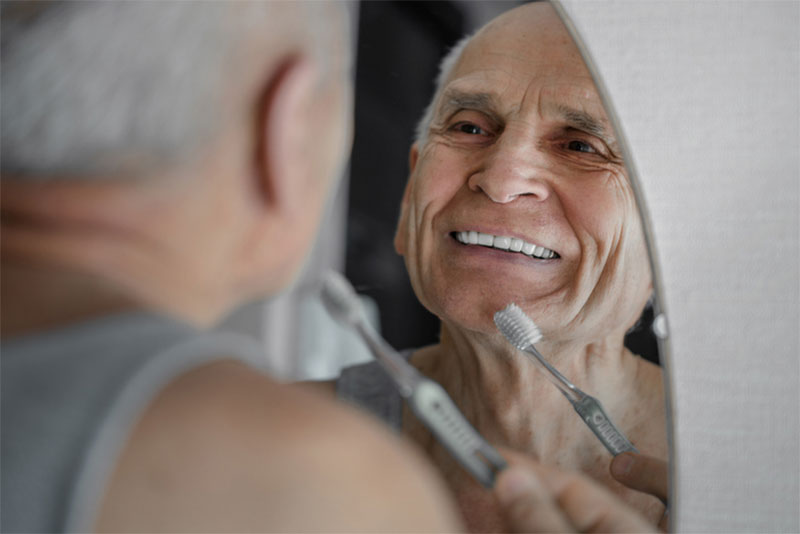
These adaptive activities can help loved ones who have dementia maintain independence for as long as possible.
If you’re caring for someone with dementia, you might be inclined to do as much as possible for the person to help relieve the strain of even the most basic tasks. Living independently with dementia may even seem impossible. Nevertheless, all of us have an inherent need to preserve self-reliance and the freedom to stay in control of our lives. This is true in spite of Alzheimer’s and other forms of dementia. Consequently, it’s very important to develop adaptive activities to promote independence for the person you love, to whatever degree feasible.
How Can I Encourage Independence for a Person With Dementia?
It requires some extra time and energy to adjust daily activities to promote independence, but it will be well worth it. And of course, the stage of dementia is going to be a prominent consideration in just how much adaptability is required. Here are a few ideas for adaptive activities to get you started on rethinking how everyday tasks can be carried out effectively for somebody with dementia.
Planning and Set-Up
Think through the steps involved with a specific activity, and which may be complicated for the individual. For example, reaching up to get a dish out of a high cabinet, twisting the tie off a bread bag, and making a sandwich could be challenging. In this situation, before the person comes into the kitchen, take care of those steps, getting the plate out of the cabinet and laying out items to make a sandwich. They may then be able to independently complete the task. Similarly, you can set out clothing, get clothes out of the dryer to be folded, or whatever advance steps will enable them to manage the activity independently.
Stand Back But Model and Prompt as Needed
Give the person some space to attempt the task, but stay nearby to give help as needed. This will allow as much independence as possible without causing the individual frustration if the task becomes too complicated. For example, the individual may pick up their toothbrush, but seem uncertain of what to do next. There are various ways you can offer help. One particularly unobtrusive way is by nonverbal modeling. You might pick up your own toothbrush, and while you’re both facing the mirror, start to brush your own teeth. This can be all that’s necessary for the person to copy your actions. If this doesn’t work, try a question prompt, such as, “I see you’re holding your toothbrush; what’s next?”
Use Detailed Instructions
If modeling and prompting aren’t helping, try breaking the process down into smaller steps and providing verbal cues for each step when necessary. In the example above, it could look something like this: “Let’s place the toothbrush on our teeth. Now we will move the brush forward and backward, like this. Next, we’ll take a sip of water and rinse.” After every step, pause and see if the individual can continue independently, and if so, stop your verbal guidance and step back once again to let them complete the task independently.
Supervise
Whatever the person’s skill level, be sure to stay close enough to ensure safety. This doesn’t mean hovering over the person while they are brushing their teeth. But it does mean being close enough to ensure that they’re turning on cool water as opposed to hot to prevent a burn. There is a fine line to walk between safety and independence.
Want more ideas for adaptive activities that can help loved ones with dementia stay independent for as long as possible? At Absolute Companion Care, a provider of Alzheimer’s and dementia care in Baltimore, Monkton, Owings Mills, and the surrounding areas, it is always our main priority to empower older adults to maintain as much control over their daily lives and choices as possible, while guaranteeing their wellbeing and safety. Contact us at 410-357-9640 if you’d like to speak with us about any challenges you are facing in caring for a loved one with dementia. We are always here to help.
